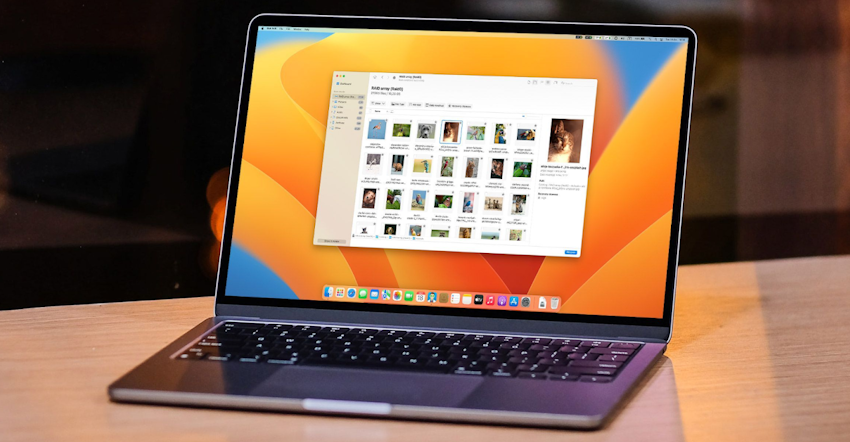Introduction
Data loss remains the primary source of headache for individuals and businesses especially those handling big data. However, there are many data management tools today and people should not be worried about where to go in case of data loss.
Many people ask whether Disk Drill is open-source or not. If you are looking for open-source data recovery tools only, it will be good to know that there are several options to choose from today. Due to the rising preference and use, open-source software frequently features in top data recovery software rankings. In this article, we share with you the seven best open-source data recovery software for your data management needs.

What is an Open Source File?
It is however very important to make things clear before we go deeper. Open-source files are those files that have been created using open-source software and are made freely available for people to use, modify, and distribute.
Open source tools are therefore free to use for all.
Why Should You Use Open Source Data Recovery Software?
Well, many people want to use free tools for several reasons. However, there are certain key reasons why you should try open-source tools to manage your data recovery scenarios. Below are the three main reasons:
- Cost – they are free to download and use. If you go for paid versions, it can be a significant cost. Open source therefore helps you save on data recovery tools.
- Community support – they are usually supported by a community of developers and users alike. they usually also contribute to the project by offering feedback, fixes, and bug reports. The software can therefore be very reliable, and updates can be quite timely.
- Transparency – users are free to view the source code and learn how the software works. This aspect of transparency builds trust among users as they can see that the software is not engaging in other questionable activities.
However, for one reason or another, some people may not prefer them. Limited availability of open-source software for data recovery may just be one good reason why some users go for the paid versions such as Disk Drill developed by Cleverfiles without thinking twice.
Top 7 Open Source Data Recovery Software
1. iMyFone D-Back
This is a powerful data recovery tool that is available for iOS, Mac, Android, and Windows. It comes with a host of features that ease the data recovery process.
Pros
- the user interface is very friendly and easy to use
- it can recover several types of files including messages, videos, and contacts
- it has advanced recovery options such as selective data recovery, and deep scanning, and can be very useful in recovering lost data even in complex scenarios
- it supports Windows and Mac
- preview function is available
Cons
- the pro version is very expensive
2. Scrounge NTFS
This is one of the best recovery apps built for lost or deleted file recovery from NTFS file systems.
Pros
- Built for NTFS file recovery which is the most common type in Windows Operating systems
- The simple and user-friendly interface makes it easy to use
Cons
- Limited features with some crucial features such as deep scanning and file preview missing
- Requires some technical skills to use effectively
3. Recoverit
An open-source tool that allows users to recover lost or deleted files and supports data storage devices such as USB drives, memory cards, SSDs, and hard drives.
Pros
- Has a deep scan feature that can recover formatted data
- It is available for Windows and Mac users
Cons
- The full version is paid
- Takes much longer to scan large volumes
- Availability and response time of customer support are wanting
4. Test Disk
This is another free and open-source data recovery software. It supports lost partition recovery and can fix disk boot issues.
Pros
- Free for all
- Can recover lost partitions and fix boot issues
- Supports FAT, NTFS, exFAT, ext2, and ext4 file systems
Cons
- While some users prefer a command-line interface, it can be intimidating and challenging to some users
- Some technical skills required for effective use
- Looks outdated and old school
5. Kickass Undeleted
This is a data recovery tool that is built to recover deleted Windows file systems.
Pros
- Quick scanning process
Cons
- It is only compatible with Windows and does not support any other operating system
- Does not have a graphical user interface
6. FreeRecover
This is an all-in-one open-source recovery program built to fix data loss issues.
Pros
- Unlimited recovery size
- Allows users to customize to suit their own needs
Cons
- Limited documentation available
- Only available for personal use or home use only
7. Recuva
This is a highly compatible software. It comes with an advanced scanning option to make your file recovery seamless.
Pros
- It has a free version that can recover up to 2 GB of data
Cons
- It can easily install unwanted software during installation
- It’s a paid service and can be very expensive compared to other tools
- The deep scanning option takes a very long to finish the scan
Conclusion
From the discussion, you realize that there are several open-source data recovery apps. However, a number of them are not fully free. They integrate free versions and paid versions to bring additional features to users. When choosing, consider the cost of losing data, the time required for recovery, how the loss occurred, and the success rate of the software among other factors. This will help you not fall into the trap of a free version of open-source software that won’t perform its tasks.


Comments (0)